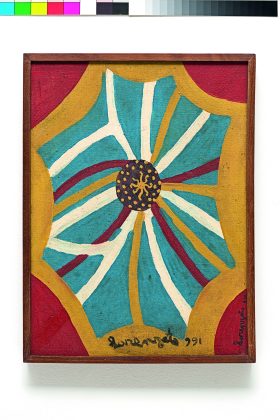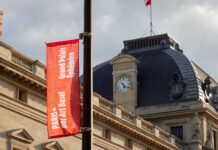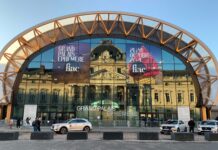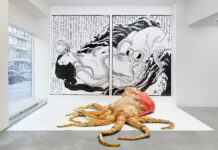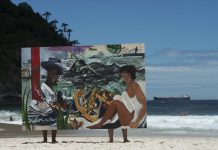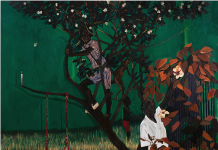With approximately 83,000 visitors in the five days that Art Basel Miami Beach was open for visitation last December, the show collected encouraging numbers in relation to sales from participating galleries. Good news also for Latin American art, which always stands out at the fair.
The organization of the fair announced that sales were strong at all levels of the market. However, the strength of buyers from nearby countries is becoming increasingly evident. The regionalization of the editions of the fair has been something noticed by many in recent years. Because it has editions on several continents, Art Basel has seen some of its patrons prefer to wait for the closest edition to cross the ocean to buy works of art. Still, visits by collectors and representatives of institutions such as the Center Pompidou in Paris and the Serpentine Galleries in London do not disappoint.
In the event of 2018, something caught the attention of the galleries that participated: the will of the buyers in wanting to insert in their collections works of black, Latin artists and women artists. This desire reveals in some way the force of the claims of movements that fight against the erasure of the artistic production made by these social groups.
The Brazilian galleries reported some success in their sales. Among the 14 Brazilian artists, Nara Roesler Gallery, based in São Paulo, Rio de Janeiro and New York, sold works by artists such as Vik Muniz, Tomie Ohtake, Julio LeParc and Artur Lescher. Bergamin & Gomide negotiated works by Ivan Serpa and Leonílson.
The two are the only houses in Brazil that also participate in the edition of the fair in Hong Kong, from March 29th to 31st. Nara Roesler will present works by some of the successful artists in Miami Beach, but also includes works by Xavier Veilhan, Hélio Oiticica and José Patrício. Bergamin & Gomide will invest in works by Jac Leirner, Rivane Neuenschwander, Jim Hodges, Lorenzato and Mira Schendel.
Participating in the Discoveries sector with the Commonwealth and Council gallery in Los Angeles, Brazilian Clarissa Tossin, represented in Brazil by Galeria Luisa Strina, will present some works she has developed recently. Starting from ideas raised by the writer Octavia E. Butler in the triology Xenogenesis (1989), Tossin brings to light “a post-apocalyptic materiality” that involves the ecological issues of the planet, considering “the aesthetic traditions of the native people of the Amazon in relation to the culture contemporary commodity. “ Also noteworthy for Argentine-born artist Rirkrit Tiravanija, who will be exhibiting an untitled work of 2018, made of gold leaf written in Chinese characters 吗 在 同 一片 一片 天空 下 做梦 吗 (which can be translated as “We are dreaming under the same sky “) pasted on a newspaper.
The event in Hong Kong will feature 242 galleries from 35 countries. In a move that also demonstrates some of this regionalization of the fair’s editions, the Kabinnet sector will focus on artists from Asia, featuring both well-established and emerging artists. They will be, in all, 21 conceptual expositions in a limited space and with special curation within the stands. Highlights for Simon Starling at The Modern Institute and Joan Miró at Lelong Gallery.
In the Film sector, multimedia artist and film producer Li Zhenhua has separated 27 film and video works that address the current socio-political context, including works that have been shown at major festivals such as Lou Ye’s Spring Fever, which won the award for Best Screenplay at Cannes in 2009 and Jia Zhangke’s Dong, screened at the Venice International Film Festival and the Toronto International Film Festival in 2006. In Conversations, the highlight is the conversation between several curators who produced exhibitions based on Asian geography “ discussing the format of exposure as a way to make maps that seek new understandings, perspectives and dis / connections in a region composed of many regions. “


